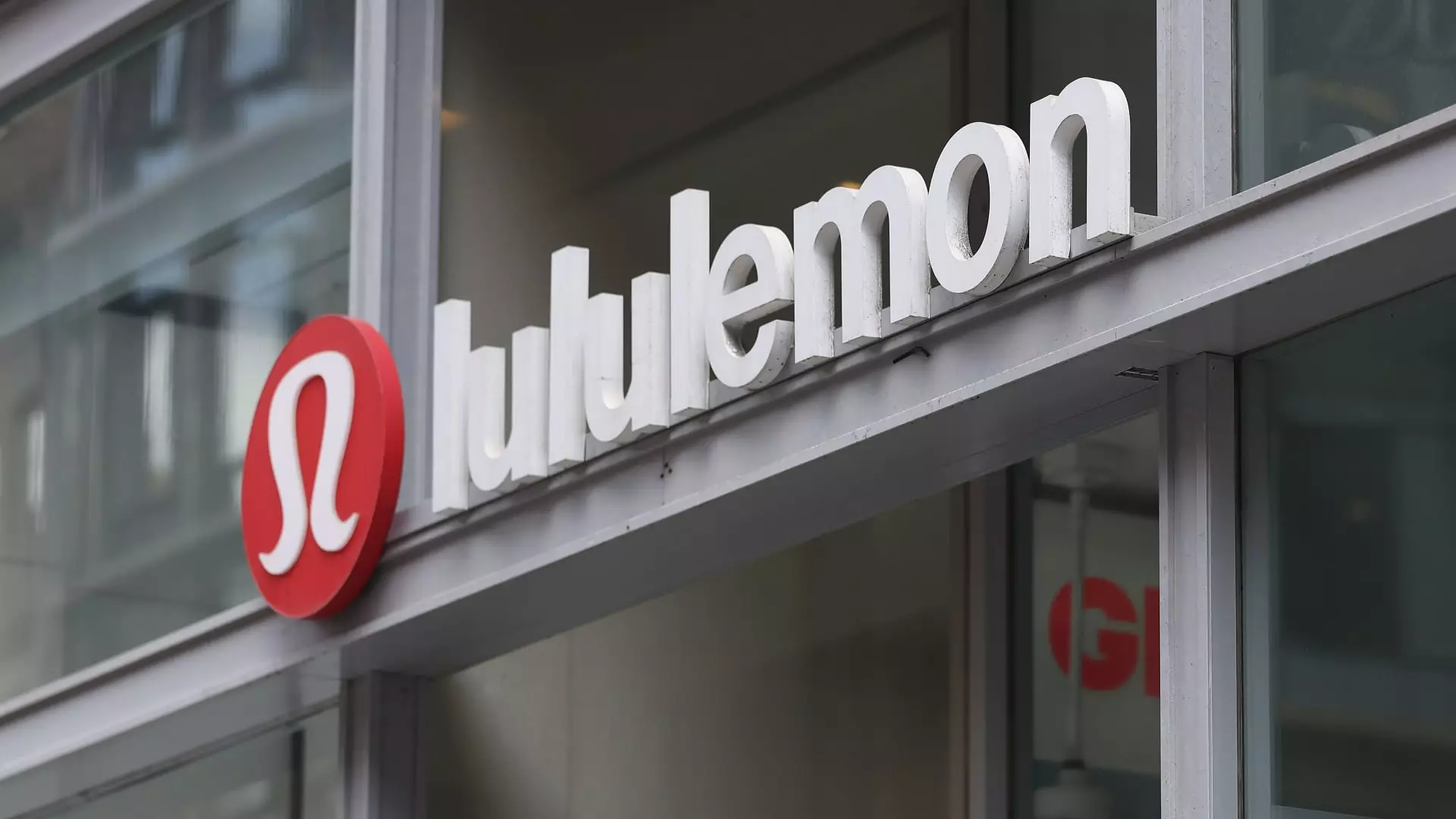The recent plunge of Lululemon’s shares by over 11% serves as a glaring reminder of the fallout from protectionist policies. This athletic apparel giant sourced 40% of its products from Vietnam, which was hit hard by a staggering 46% tariff. The company’s vast reliance on manufacturing hubs such as Vietnam, Cambodia, Sri Lanka, and Indonesia signifies a chink in its armor, exposing it to the whims of trade tariffs. These punitive measures are not merely numbers on a ledger; they represent a fundamental threat to the core of this thriving sector. What’s worse, consumer habits are fickle. As Lululemon’s prices may surge due to these tariffs, the brand risks alienating its loyal customer base, who have come to expect affordability along with quality.
Footwear Facing Footfalls
Similarly, Deckers Outdoor experienced a harrowing 14% decline in stock value. With a staggering 68 supply chain partners in Vietnam alone, the repercussions of tariffs are not just economical; they potentially jeopardize jobs across the supply chain. The Ugg maker’s close ties with China add an additional layer of vulnerability. To illustrate, the reciprocal tariff rollout appears not just to stifle profits but also to impart severe consequences to manufacturing dynamics globally. As a center-right liberal, I see both the necessity of protecting American interests and the fatal flaws in nearsighted tariffs. They can only stifle innovation while relying too heavily on existing, albeit fragile, manufacturing structures overseas.
Discount Retail: A Looming Crisis
The discount retail sector is sensing a crunch as well. Companies like Five Below and Dollar Tree are feeling the heat, with shares plummeting 27% and 9%, respectively. These retailers are deeply reliant on imported goods, and their CEOs have hinted at raising prices as a desperate move to offset the impacts of tariffs. In the short term, this might provide temporary relief for their bottom lines, but the long-term implications are more grievous. What does that mean for consumers already grappling with inflation? Society has conditioned itself to expect low prices at discount stores. An increase in prices may very well push families to reconsider their shopping habits, which sends ripples through the economy.
Financial Sector in Disarray
The ramifications extend to the financial sector as well, with major banks like Goldman Sachs and Morgan Stanley taking an 8% hit. Investors are reckoning with the potential consequences of Trump’s tariff policies, which could usher in economic turbulence. A robust banking ecosystem is contingent on the thriving commerce flow between nations, and tariffs could stall that momentum to a grinding halt. While I acknowledge the need to evaluate trade deals and maintain national interests, one must question whether such drastic measures truly serve the American people or destroy the delicate balance of global commerce.
Trade Wars Affecting Automotive Industry
The automotive industry isn’t immune either; Ford’s stock slipped nearly 4% as the company faced newly imposed tariffs. The announcement of employee pricing programs is merely a cosmetic fix for deeper problems. The recent 25% tariffs on imported vehicles threaten to skyrocket car prices, forcing families to reconsider major purchases. It reeks of irony that an administration aimed at bolstering American manufacturing may actually undercut its successes by making cars unaffordable for average Americans. The intertwining of logic and instinct is entwined deeply in America’s socio-economic fabric; while we strive for independence from foreign reliance, we can’t simply dismantle existing global partnerships overnight.
Tragic Tales in the Tech Sector
Big Tech companies are feeling the pinch too. Nike, Amazon, Apple, and others have seen their values tumble under the weight of sanctions. The sentiment among investors that tariffs will lead to rising consumer prices and constrain business growth is palpable. For instance, Nike’s footwear pricing could soar, changing consumer dynamics and cutting into their market share. It’s a paradox; we’re trying to elevate American products, but at what cost? Can we crash the value of established players without incurring dire consequences for the everyday consumer?
Amid Turbulence, Some Bright Spots
Yet not all is dark. Lamb Weston’s stock climbed over 9% after a robust earnings report, defying the broader trend. This highlights a crucial point: Adaptive companies that can pivot quickly in response to market turmoil may not only survive but thrive. Perhaps therein lies the cautionary tale: While we react to tariffs with outrage, let’s not forget that agility and innovation could emerge as our best outlets. In an economy buffeted by rapid changes, businesses must learn to navigate perilous waters with both flexibility and strategic foresight.
Tariff policies need nuanced discussions reflecting on wider realities, rather than knee-jerk reactions based on pride or politics. It is imperative that as a society, we weigh the risks of insular nationalism against the pressing demand for interconnectedness.

